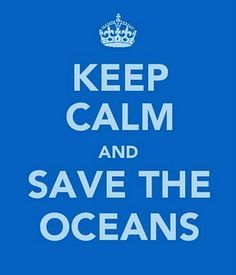Effortless, Little Steps to Preserve the Marine Environment
Hint: This might not be so effortless…Here’s a story about Lena. Lena recently realised that her actions have been indirectly harming marine life and wanted to alter that. This is how Lena has decided to make some little changes in her daily routine in an attempt to help the environment.
1)Lena lives in a cold country but she doesn’t turn on the heater all day and all night. She bundles up and only turns it on when it’s necessary. Not only is she saving money, she’s also conserving energy.
2)Instead of taking the elevators up to the train or bus station, Lena ensures she walks up the stairs. It’s a little cardio workout for sure, but it the process of using up her energy, she’s also conserving energy and helping the environment.
3)Lena tries to cycle or take the bus when she wants to go into the city. It’s easier to drive when she has a lot of shopping to do, but if it’s for a coffee meet up or to go to the cinema, she prefers to leave the car in the garage to reduce her carbon emissions.
4)She hydrates herself using her reusable water bottle so there’s no need to buy plastic bottles in the shops anymore. She’s also talking to her neighbourhood and workplace officials into implementing water fountains for everyone’s use.
5)Whenever possible, she refuses to drink out of plastic cups or straws and reminds herself to bring out a metal straw and reusable coffee mug. Her local cafes thank her for that (and she avoids the coffee shops that don’t allow her to use her own mug!)
6)Lunch is always a tricky subject. Lena often eats lunch out, but these days she brings them from home in her reusable food container. If not, she tries to take it around and ask the cafes if they’re comfortable with packing her food in there.
7)Disclaimer: I know it’s a lot to bring around – the water bottle, metal straw, reusable coffee mug and reusable food container! And you only have so much space in your bag! It’s also hard to remember sometimes. So don’t worry too much about it and try your best anyway. If you work in an office and have your own little space, it’ll be useful to leave them there to use as you need to.
8)On her grocery store runs, Lena remembers to pack a few reusable shopping bags and store a few in her car as well (in case an impromptu shop session occurs – which is usually the case).
9)Lena also tries to save water. She knows it’s hard to stop the long and warm showers, so she makes it fun by attaching a 3-minute hourglass next to her soap and shampoo. This way, she’s able to time her showers before the last drop of sand hits the bottom of the glass.
10)Lastly, because of her (new found) love for the beach and the ocean, she makes sure she brings a trash bag to the beach every time to do a little clean-up on her own. If everyone picks up the trash they see every time they head to the beach, the beaches we have today will be a lot cleaner in the years to come.
Do you have any tips to add on? Share your thoughts with us in the comments below.
If you’d like to know more on how you can help, have a read here.
© Ocean Research & Conservation Ireland (ORCireland) and www.orcireland.ie , est. 2017. Unauthorized use and/or duplication of this material without express and written permission from this site’s author and/or owner is strictly prohibited. Excerpts and links may be used, provided that full and clear credit is given to Ocean Research & Conservation Ireland and www.orcireland.ie with appropriate and specific direction to the original content.
SHARE THIS ARTICLE














